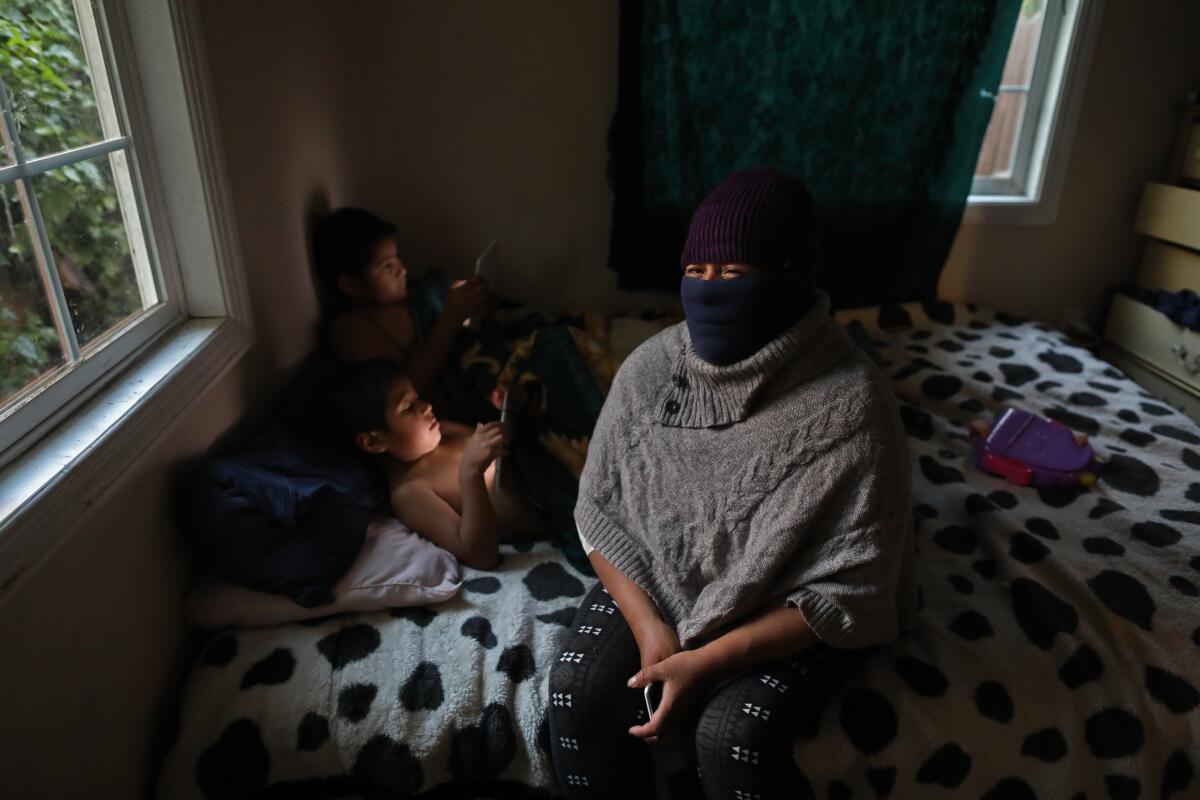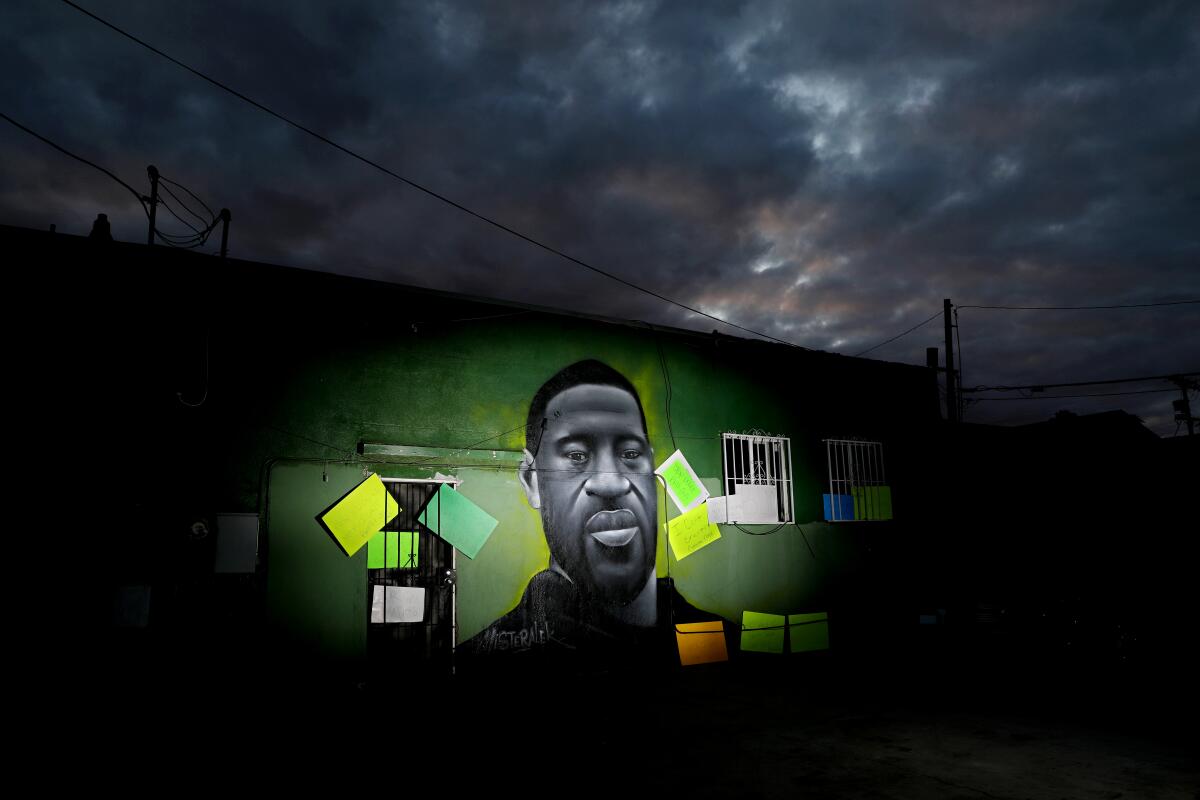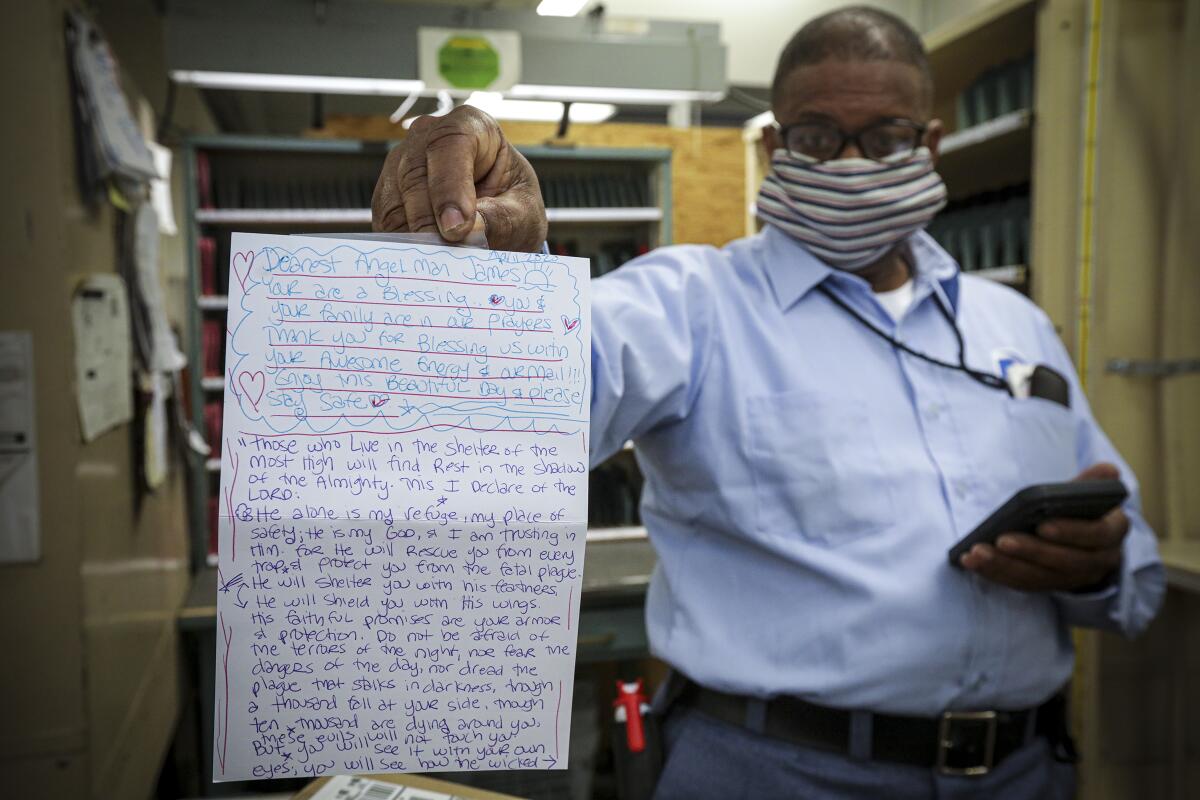Coronavirus Today: ‘Only way we get back to work’
Good evening. We’re Diya Chacko and Sam Schulz, and it’s Friday, June 12. Here’s the latest on what’s happening with the coronavirus, plus ways to spend your weekend and a look at some of the week’s best stories.
As California reopened another large sector of its economy Friday, its number of coronavirus cases kept climbing, a day after logging the biggest one-day surge so far. Officials have always expected an increase as the strictest version of the stay-at-home order was gradually lifted. The question now is whether hospitals will be able to handle it, because it can take two to four weeks for newly infected patients to need that level of care.
Oregon, which like California just saw a record one-day case count, is pausing its reopening. But California’s still continues apace, with TV and film production resuming today in L.A. County and nail salons and tattoo parlors soon to follow in other areas. But while L.A. County is letting museums reopen as early as today, not one of the more than a dozen queried by The Times was prepared to welcome visitors. Most won’t open for weeks, if not months, and one guideline alone could pose a major logistical challenge.
The reopening will make public adherence to health guidance, including new guidelines from the Centers for Disease Control and Prevention, all the more important to stemming the spread. The CDC’s tips for minimizing risk, issued Friday but considered long overdue by some experts, include calling businesses you expect to visit to ensure staff are wearing masks, using hand sanitizer after getting cash and skipping elevators in favor of the stairs — but there are some glaring omissions.
Already, most Americans are maintaining precautions such as wearing masks and keeping their distance, a new poll finds — behaviors that health officials have made clear are the only way to avoid a wave of new infections. But a mask rebellion is underway in some parts of California as residents push back on rules requiring face coverings. It’s not just in Orange County; Fresno, Riverside and San Bernardino counties have also buckled to public pressure.
The backlash is alarming public health experts. “It’s the only way we get back to work — it’s to mask,” said UC San Francisco epidemiologist Kirsten Bibbins-Domingo, adding that “it’s pretty clear that masking is the element that changes the trajectories of the COVID pandemic.”
As for those who have been infected, scientists are still trying to determine who is immune, and what exactly that means. Dr. Anthony Fauci, the nation’s leading expert on infectious diseases, called the emerging evidence on coronavirus immunity “confusing,” “perplexing” and “a bit unusual” and pointed out that we still don’t know how long immunity lasts. Two studies out this week support the hope that some people have earned immunity that can be roughly measured. But the reports should also temper the expectations of politicians counting on armies of the recovered to lead a charge back to normalcy.
Those politicians have taken different tacks as the pandemic drags into summer. For President Trump, who on Friday revoked healthcare protections for transgender Americans, the current strategy on the coronavirus is mostly just not to talk about it. “Suddenly, the screen went blank,” said Dr. Jeffrey Koplan, a former CDC director, of the administration’s recent approach. If “they think that the risks are over, that’s dead wrong.” And Gov. Gavin Newsom’s tactic has been to assume unprecedented control of state government — something few lawmakers realized they were clearing the way for him to do when they voted to recess in mid-March, and something that’s now fueling bipartisan frustrations among them.
By the numbers
California cases and deaths as of 3:52 p.m. PDT Friday:

Track the latest numbers and how they break down in California with our graphics.
What to read this weekend
The science behind the race for a vaccine. Nearly 160 COVID-19 vaccine candidates are in development in laboratories around the world. Although all approaches are distinct, they are based on a few simple strategies. Some have been around for years; others are being tested for the first time. We took a closer look at how they work and which labs are farthest along.
Hooking up in a pandemic. Most forms of in-person social interaction have waned dramatically as a result of the pandemic, and casual sex is no exception. But a minority of people have been been trying to ease the stress, loneliness and boredom with one-night stands and group sex.
“It’s a bad situation, and we know it.” Officials in the Salinas Valley, known as the “salad bowl of the world,” and agriculture industry leaders are acutely aware of just how quickly the coronavirus can spread among farm workers. The industry, considered essential, depends on low-wage labor from people living in overcrowded housing and poverty.

Telling stories to provide better care. Narrative medicine is a discipline in which doctors and nurses use the principles of literature and art to better understand patients’ stories and incorporate them into their practices. For patients worried about COVID-19, it’s helping doctors dispel their fears and and gain trust.
Tracking COVID-19 with QR codes. How do you safely resume nights of dancing, drinking and singing at a time when the threat of a deadly, highly contagious virus still lingers? South Korea, which saw a possible end to its outbreak derailed when a rise in infections was blamed on clubbing, is trying out a mandatory high-tech registry for bars, clubs and karaokes.
Your support helps us deliver the news that matters most.
What to do this weekend
Watch movies about Black lives. Spike Lee’s new film “Da 5 Bloods,” about five Black veterans who return to Vietnam in the present day, has just hit Netflix, and our critic Justin Chang calls it “big, brash and rightly furious.” (The Times’ Josh Rottenberg spoke with Lee about the film recently, and Mark Olsen rounded up other reviews of it in his Indie Focus newsletter.) Netflix also has a new Black Lives Matter section with titles including “13th” and “Pose.”
Celebrate Black lives and Pride, just not at the same time. A Black Lives Matter protest march is still happening Saturday, but L.A. Pride will not be involved as previously planned. After announcing a solidarity march, Pride organizers had faced backlash for seeking a police permit for the event and not collaborating with Black Lives Matter leadership.
Support Black-owned eateries. Consult our lists and head to some of L.A.’s Black-owned coffee shops, restaurants and food trucks, and order something delicious from these Black-owned food companies. Get our restaurant critics’ Tasting Notes newsletter for more recommendations.
Get outdoors close to L.A. Parking lots that had been closed at many California state parks are back in business. Santa Catalina Island is reopening, including its trails; here’s what to know before you visit. From the region’s trails to its beaches, we’ve compiled the latest on what’s open and what’s not. You can sign up for our forthcoming newsletter the Wild for more.
Get artsy outdoors. Artists have memorialized George Floyd, who was killed by Minneapolis police, in street art throughout Los Angeles. Times reporter Dorany Pineda explored how these works have become symbols of injustice and police brutality. You can them yourself in person or by watching our video.

Get baking. Banana bread may be a pandemic staple, but that doesn’t mean it can’t be improved upon. Cooking editor Genevieve Ko has a fluffier but still dead-easy alternative. Get more from her and columnist Ben Mims’ weekly newsletter.
Give your old things new life. If you decluttered during your quarantine, there’s good news: Some Goodwill thrift stores have reopened and are taking donations again. If you haven’t yet culled your stuff but want to, we’ve got some tips on how.
Become a better dog owner. Whether you’ve been one forever or adopted a pet during quarantine, “Dog Whisperer” and trainer César Millán has some tips worth trying, and they start with training ourselves. Plus, learn how to keep your dog safe during the pandemic.
Listen to a podcast. Try “Coronavirus in California” for dispatches from the front lines. If you’d rather take a mental break from the crisis, check out our new podcast “It Was Simple: The Betty Broderick Murders,” written and hosted by columnist Patt Morrison. Here are more great podcasts, too.
Resources
— Wash your hands for at least 20 seconds (here’s a super-fun how-to video), and keep your phone clean. Practice social distancing, maintaining six feet of space. And wear a mask if you leave home. Here’s how to do it right, and here are the rules around Southern California.
— Watch for symptoms like fever, cough, shortness of breath, chills, repeated shaking with chills, muscle pain, headache, sore throat and loss of taste or smell. If you think you might be infected, call your doctor or urgent care clinic before going.
— Here’s how to care for someone with COVID-19, from monitoring their symptoms to preventing the virus’ spread.
— If your job has been affected by the pandemic, here’s how to file for unemployment.
— We’ve got free resources for restaurant and entertainment industry workers having trouble making ends meet.
— Helping kids navigate pandemic life means being honest, acknowledging their feelings and sticking to a routine.
— In need of mental health services? Here are resources for coping during the crisis from the CDC and the L.A. County Department of Public Health. L.A. County residents can also call (800) 854-7771 or text “LA” to 741741. A pandemic in pictures

Got a question? Our reporters covering the coronavirus outbreak want to hear from you. Email us your questions, and we’ll do our best to answer them. You can find more answers in our Frequently Asked Questions roundup and in our reopening tracker.
For the most up-to-date coronavirus coverage from The Times over the weekend, visit our homepage and our Health section, listen to our “Coronavirus in California” podcast, sign up for our breaking news alerts, and follow us on Twitter and on Instagram.





